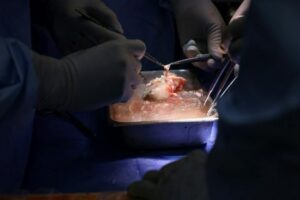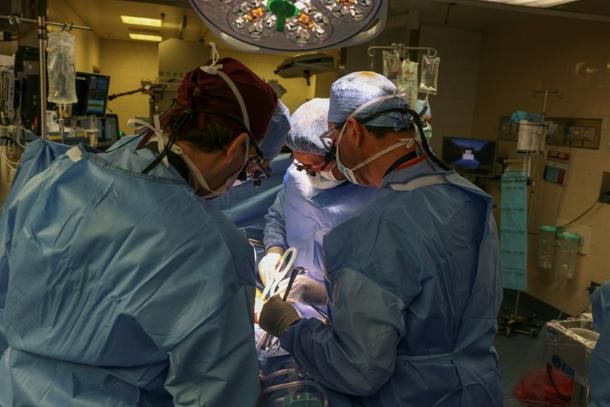Historic Pig Kidney Transplant in the US Offers Hope for Organ Shortage Crisis
In a groundbreaking medical achievement, US surgeons have successfully transplanted a genetically modified pig kidney into a living patient for the first time, Massachusetts General Hospital announced on Thursday. The four-hour procedure, conducted on a 62-year-old man suffering from end-stage kidney disease, marks a significant milestone in addressing the persistent shortage of donor organs.

Described as a major breakthrough in organ transplantation, the operation exemplifies the hospital’s commitment to providing accessible treatment options for patients in need. With over 1,400 individuals awaiting kidney transplants at Massachusetts General Hospital alone, the innovative approach holds promise for revolutionizing organ availability on a global scale.
Dr. Tatsuo Kawai, a key member of the surgical team, expressed optimism about the potential impact of this transplant method, emphasizing its potential to serve as a lifeline for millions of individuals worldwide grappling with kidney failure. The genetically edited pig kidney utilized in the groundbreaking surgery was supplied by Massachusetts-based biotech firm eGenesis, which employed advanced genome editing techniques to ensure compatibility with human recipients.
Mike Curtis, the CEO of eGenesis, hailed the development as a transformative advancement in medical science, underscoring the power of genetic engineering to enhance patient outcomes and alleviate the burden of kidney failure on a global scale. The patient, Richard Slayman, who is currently recuperating well following the transplant, is slated for discharge in the near future.

Despite the need for ongoing immunosuppressive therapy to minimize the risk of rejection, Slayman’s successful surgery offers a ray of hope for individuals facing similar health challenges. His decision to undergo the pig kidney transplant reflects not only a personal commitment to his well-being but also a beacon of hope for countless others awaiting life-saving transplants.
As highlighted by Slayman’s medical team, the procedure holds particular significance for ethnic minorities disproportionately affected by kidney-related health disparities. By transcending traditional boundaries in organ transplantation, the innovative approach aims to bridge gaps in healthcare equity and offer a viable solution to the pervasive issue of kidney failure among vulnerable populations.
The pioneering surgery represents a remarkable step forward in the field of xenotransplantation, ushering in a new era of medical possibilities for patients in need of organ transplants. Leveraging cutting-edge genetic modifications and stringent safety protocols, medical experts are optimistic about the transformative impact of pig organ transplants in revolutionizing the landscape of organ donation and transplantation.
Through the compassionate use of experimental therapies, exemplified by Slayman’s case, medical researchers and practitioners are pushing the boundaries of innovation to provide tangible benefits for patients facing critical health challenges. The successful pig kidney transplant not only offers newfound hope for individuals like Slayman but also paves the way for a more equitable and inclusive approach to organ transplantation on a global scale.













































